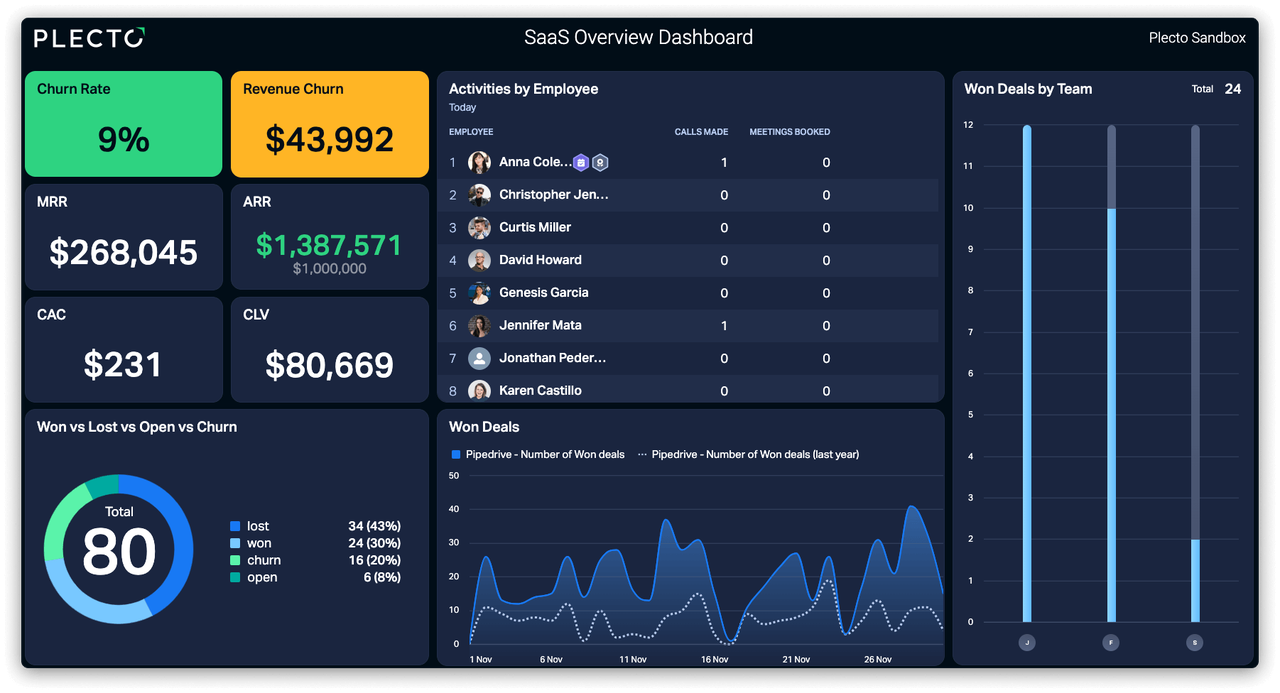Ensuring good employee performance is something every company strives for but it's hard to obtain. To get employees performing at their best, they need to know their company's ways of operating and the new methods they are using since everything is evolving. And that's where coaching sessions come to play. Coaching sessions significantly increase overall job performance and keep employees informed of new company methods. Continue reading to discover 8 ways you can hold successful coaching sessions.
What are the benefits of successful coaching?
Coaching is a term used to describe coaching sessions where the aim is for employees to learn and develop both soft and hard skills. Successful coaching can result in a major improvement in self-confidence, enhanced interpersonal and communication skills, and increased work performance, which motivates employees and makes them more ready to contribute to the team and business. In turn, this positively impacts their work performance.
8 things you need in your coaching sessions
For effective and fruitful coaching, it’s important that you structure your sessions properly. So that's why we are bringing you a list to help you figure out and improve your coaching sessions.
1. Set goals
Set clear goals for your coaching session. Know what you want to get from that session, what points you want to include, and what topics should take priority. are This will bring you more structure in your session resulting in a more productive environment. Make sure when setting goals that this is a collaborative process between you, the manager, and the employee. So that both of you are on the same page and both sides are heard.

2. Set SMART objectives
If you and your employee are struggling to find concrete goals, then consider using SMART objectives. SMART objectives stand for specific, measurable, achievable, relevant, and time-bounding objectives. By setting these kinds of objectives you can easily monitor progress and performance and keep track of the time it will take to reach that goal.
3. Be mindful of the environment
Choose an environment where there are zero distractions so the only focus can be on learning. Remember to prepare the environment if there are specific things you need to have for your session. Set them up before the session starts, and double-check that everything is working smoothly so that there are no technical issues and setbacks in your coaching session.
4. Practice active listening
Put your whole attention into the session. Focus on what is being said, try to see it from your employees’ perspective, and make sure to go over everything that is being said so you can make sure you understand each other correctly.
5. Take notes
Taking notes is helpful since it makes it possible for you to capture significant information that can be relevant later on and contributes to the development of a structured overview of the material presented. This overview can direct your future analysis by highlighting what needs more work.
6. Accountability
While it's important to have fun there should be some level of tracking progress.If you are tracking progress then that accountability also needs to exist in this process. Managers should be held accountable to their employees so that they are staying on the right path, they are also supposed to make them more motivated and goal-oriented.
Build your first dashboard.
Start your 14-day free trial today
7. Use Flow theory
World-known psychology and management science scholar Mihaly Csikszentmihalyi developed a theory that says that task difficulty should match skill level. This theory is known as the Flow theory. Without this matching, you will end up in one of two situations, the first one being the task being too hard for employees and them feeling overwhelmed thus resulting in their demotivation. The second option results also in demotivation. In this case, the tasks are too easy for your employee and they don’t feel challenged. To avoid this be aware of your employees’ abilities and assign tasks accordingly to achieve a flow state. In order to ensure that duties and responsibilities are matched to the employee's talents, managers and employees should regularly meet for coaching sessions to discuss job expectations, employee strengths, and areas for growth. This will increase job satisfaction and productivity overall.
8. Feedback and reflection
It's hard to know how you are doing without receiving regular feedback. Managers should give regular feedback to their employees and also help them in their reflections on their progress. But it’s also equally important for managers to receive feedback, since it’s very important they understand how they impact others.
How Plecto can help you make successful coaching sessions
Besides helping you with tracking your KPIs through real-time dashboards and motivating your team with our gamification features we can also improve your coaching sessions with our one-on-one module. Plecto's one-on-one module enables you to do things that make your coaching sessions successful such as: taking notes, tracking your objectives, keeping track of previous sessions and so much more.
Sign up for a 14-day free trial and start outperforming in every aspect of your business.




